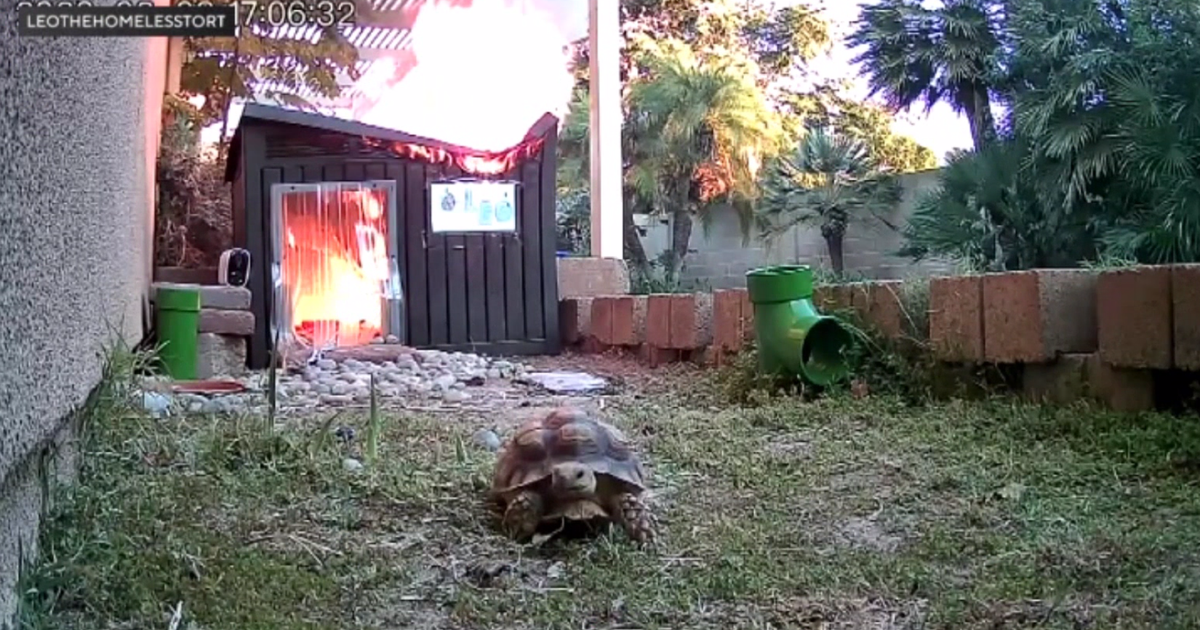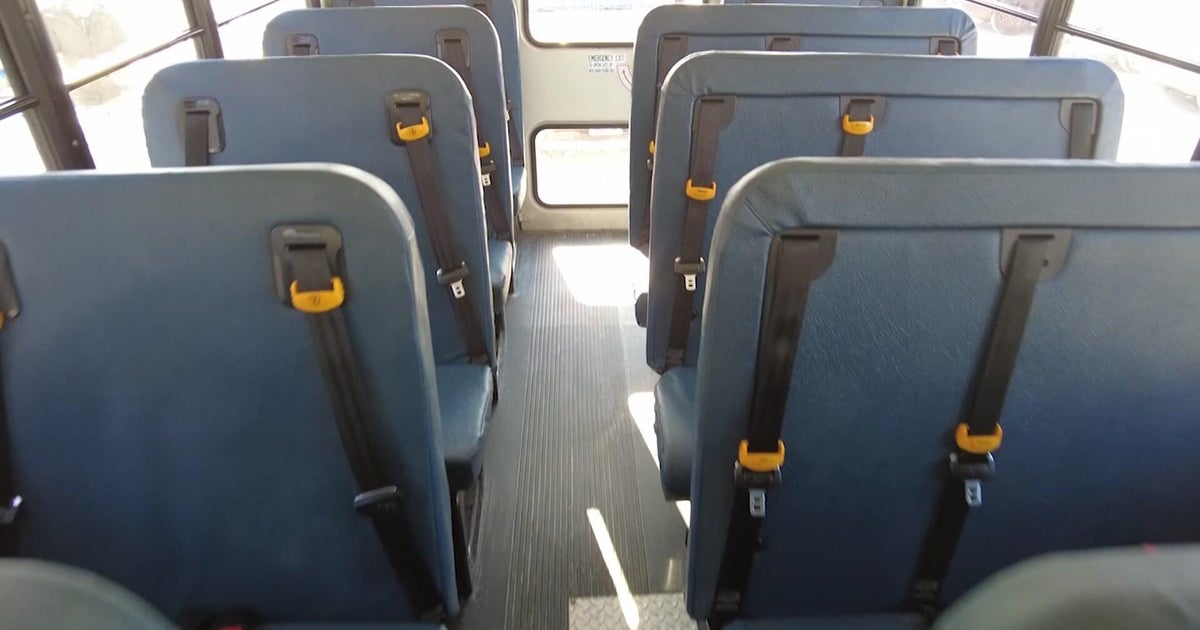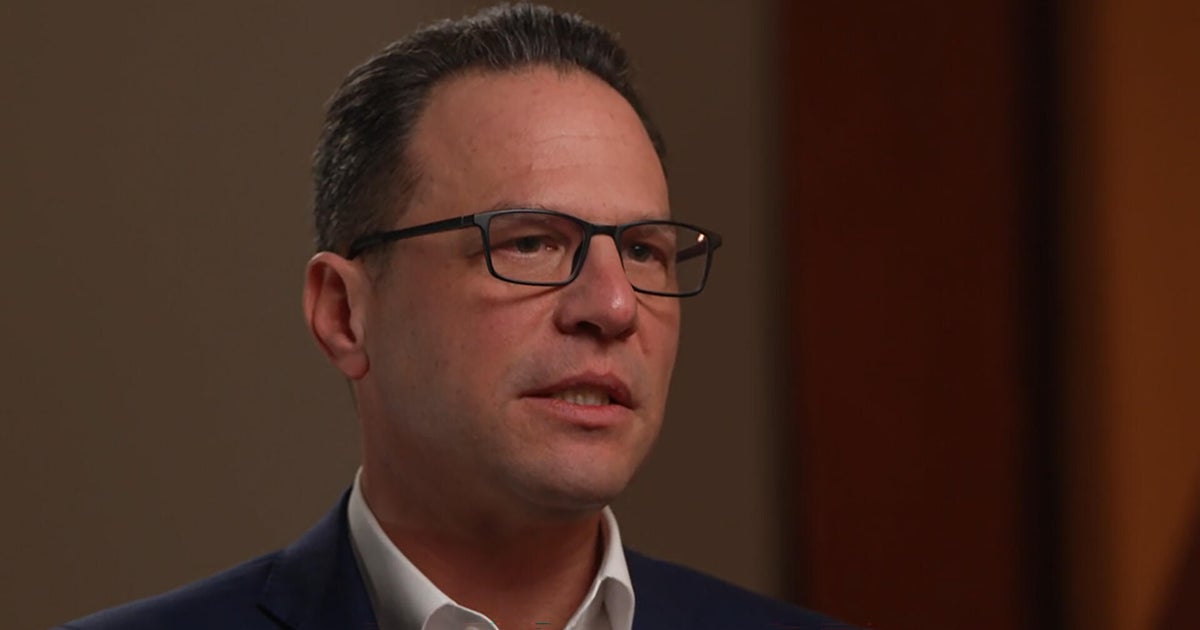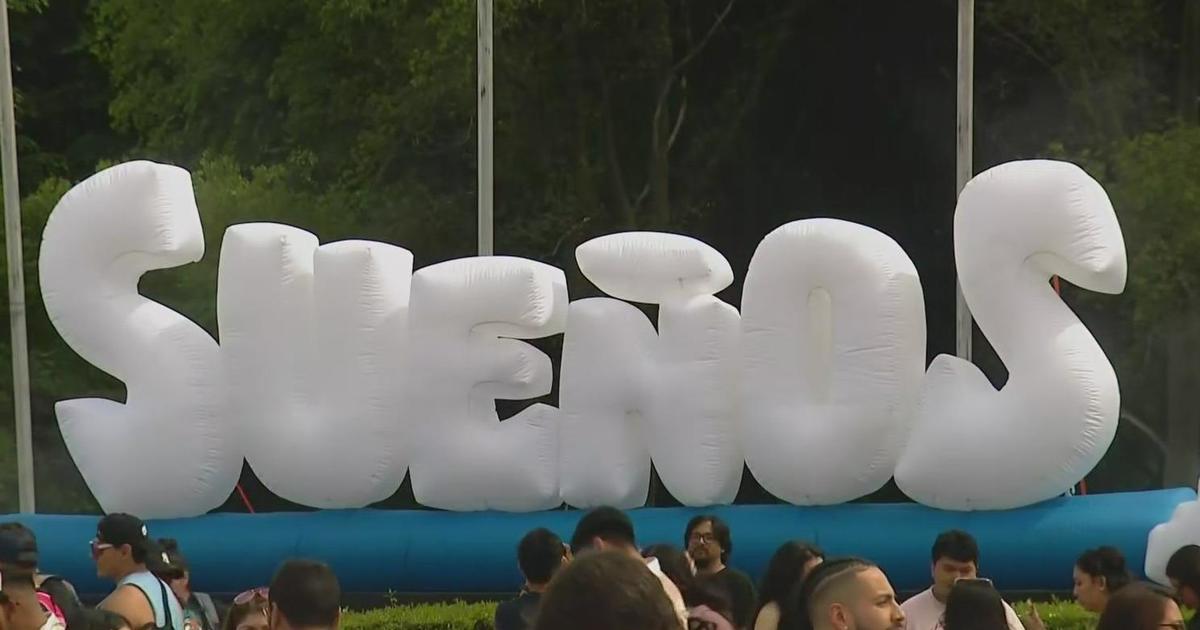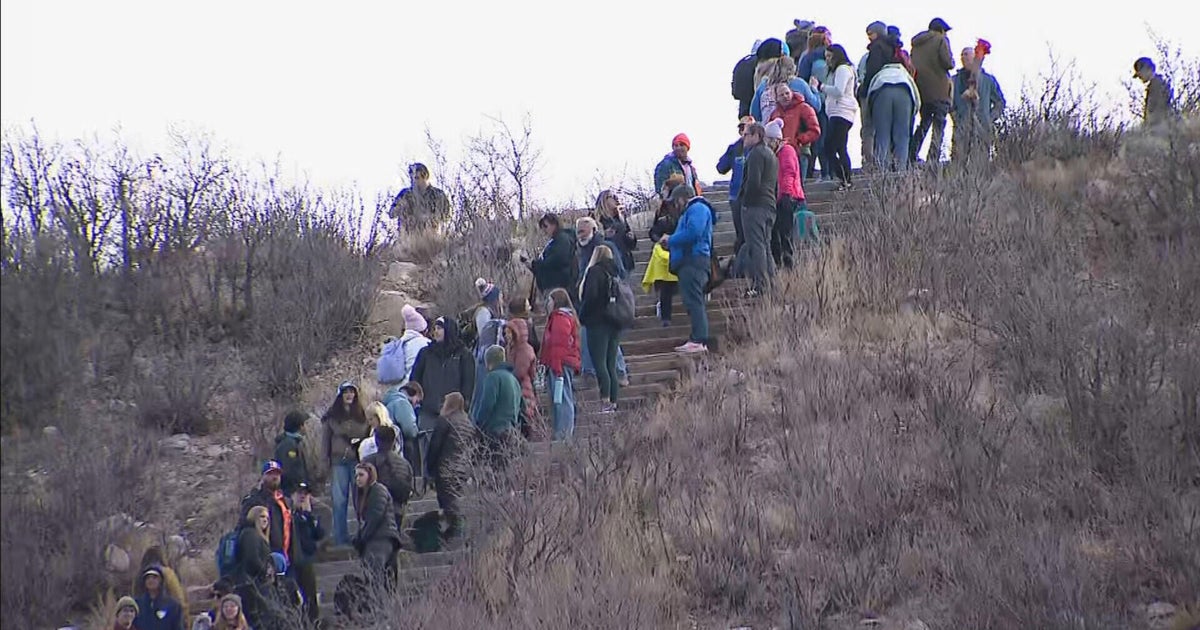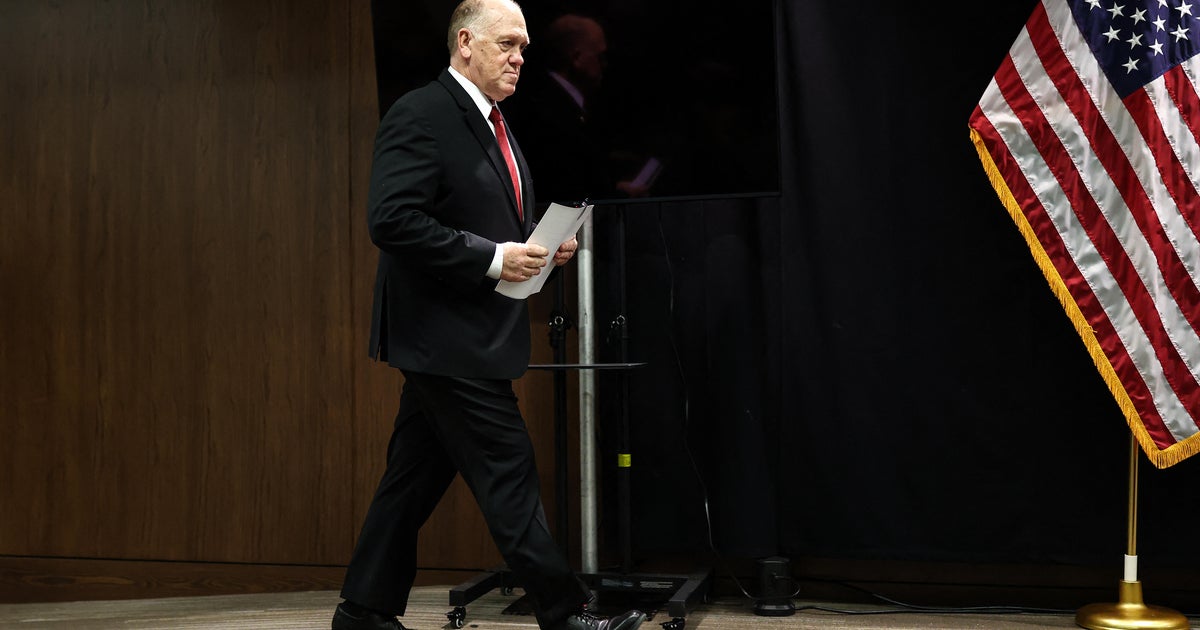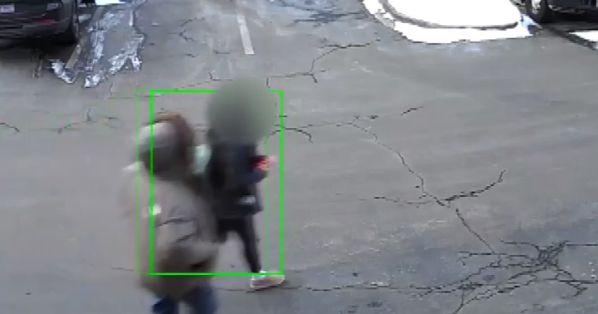Curiocity: Q&A With Joshua Radin
It's been quite a journey for Joshua Radin. The Indie artist's music has been featured in hit TV shows like Grey's Anatomy, he's provided soundtrack help in numerous movies, oh, and Ellen DeGeneres is one of his biggest fans.
Plus, just last year, he did something he's never done before -- go underwater.
Something we take for granted everyday became a brand new -- and admittedly scary -- experience for Radin after a hole that's been in his ear since he was a youngster, finally healed after 30-plus years, allowing him the chance to dive in and hear water's incredible silence.
Radin will be in concert on Thursday, Oct. 25 at Mill City Nights in Minneapolis but before he gets in town, we asked him all about his "Underwater" experience, having a fan like Ellen and why he has a special place in his heart for Minneapolis.
-------
Your latest CD "Underwater" seems to have a lot of personal stories attached to it, including the story behind your title track. I saw your commentary about that song and found it incredibly interesting. Tell us a little more.
Yeah, it happened when I was about 5 years old. I had so many ear infections when I was a kid that a hole in my eardrum formed, in my right ear. The doctor looked at it and said I could never go underwater. So I sort of just acclimated, I guess. You just have to get used to, you know. It's one of those things that everybody just takes for granted, I think. You know, being able to dunk their head in a bathtub or go swimming. I always felt a little alienated in the summer time and at summer camps and we lived near a lake so it was just sort of like I always was on the shoulder, reading a book or something when the other kids were having so much fun.
You know that song, I think it was "Strawberry Fields Forever," there's a line at the end that goes, "no one I think is in my tree" – I always felt like that. Like I was the only kid playing on the shore, alienated in a sense. Last year, the doc looked in my ear and said it naturally healed over all these years. So if I wanted to go underwater, I could try it. I was terribly afraid because he told me it would be so painful. But I decided to do it.
I worked up the courage – it sounds crazy to even say that I worked up the courage to put my head underwater, but it's true. It was incredible inspiring. I heard this silence under the water that I'd never even heard before – not even a heartbeat. My mind was so free and clear. And all of a sudden, this melody popped in my head. And it was the first melody line for the song, Underwater. And that was the first song I wrote for this album – all the other songs flowed from there. That's why I called the album, "Underwater."
The record is kind of like one big lullabye – in the best possible way. How did you bring those melodies together and create a cohesive album off that title track?
It was basically strings when I was under that water, I heard. I just heard all these strings in my head – viola, cellos and violins – and I knew that I wanted to make an album that was just loaded with strings. And I wanted to have a feeling with that one that it was from a different era. Almost like a different world.
Like a metaphor for that alienation that I felt and I always felt a separation between two worlds – land and water. So in order to get that sound, I recorded in a way I've never recorded before. In an analog session, two-inch tape, we didn't use any computers – no computer screens in the studio.
It was like totally old school, all the gear from the 60s. We couldn't even edit tape – sometimes when you record on tape, you can cut the tape, put pieces together, take a verse and a chorus from different places and so this time, with the machinery we were using, you really couldn't do that at all. So you're really hearing a live performance. That's what I wanted, I wanted you to be able to hear the room. I want you to feel like you're in there with me. And in order to do that, I basically had to enlist the best musicians that I could possibly think of because there's no editing. It's almost like recording a live album.
The song, "Tomorrow is Gonna Be Better," is incredibly moving. What was behind the lyrics?
That's probably my favorite on the album. I think that's why I started the album with it. I wrote it for a friend, actually, whose father is ill and I didn't know how to console her and so, I wrote a song. And she said it helped.
You performed at Ellen DeGeneres' wedding. What was that like? And what's it like having her as a huge fan?
It was amazing and surreal. I mean, it's not like we were friends or something. I'm just a fan and apparently, she was just a fan. So it was really cool. There was all 20 people in her living room, so it was about as intimate as possible. It was just family … and me. (laughs) I played about six of my songs and her and Portia just sat right in front of me on the couch and looked at each other and cried. It was emotional.
And having her as a support is obviously enormously helpful, especially for an Indie artist. I don't have a major label machine behind me, like some of the people you've probably interviewed. So she's got a really loud megaphone, which is nice and I'm just so appreciative. She's done so much for me. I just wrote a new song for my sister's wedding, actually, which is Oct. 6. I wrote her a song to dance with my father. So this is my second wedding I've ever played. I wrote this song, I'll put it up on iTunes in a couple of weeks, it's called "In Her Eyes." I'm going to play it on the Ellen show on Oct. 9. It's so nice to have that ability … and she's so cool, everyone at the show, Jonathan, her producer.
Most people don't realize this but when you go play on a TV show like that, normally you have to pay. Normally you have to pay a lot of money for like the backline, which is like, for the people who work the sound. It ends up being thousands and thousands of dollars, like $10,000 out of my own pocket to go play a song on TV. Most people don't realize that because most of those shows have major label artists on them and the label will pay for it. But when you're an Indie artist, you don't really want to go on those shows to take $10,000 out of your pocket to play for three-and-a-half minutes. But they're so cool.
They're like, 'Oh you don't have to pay us for that, we'll cover it for ya.' And I'm like, 'Oh, I have a new song. I'd love to come on and play it' and they're like, 'Yeah, we love it. Come on the show and play it.' It's amazing and very fortunate to have that ability to have that exposure.
Your songs have been used in ... basically every TV show ever created. What is that like to have your music as the soundtrack of such popular shows?
It's cool. I think what's cool about it is that my music is very personal and honest and emotional and usually when people use it in a movie or TV show, it's usually the scene that's very emotional. It's almost like every one of my songs gets its own music video and I don't even have to pay for it. You attach your song to a visual medium and it's pulling at people's heartstrings in two different ways. I think that's probably why it hits hard for people. It's not like you're just walking through Starbucks and you hear a song. You're hearing a song for the first time, usually, for a lot of these people, some character's dying that you've fallen in love with. That's almost like cheating for me. It's almost too easy. It's great. I love the exposure.
I just want to get my music out to as many people as possible so I use whatever vehicle or avenue that I can, whether it's print media, radio, social media, TV and film. It affords me the ability to go and play at places where I'm not even on the radio. Normally, artists don't get to do that unless they have some big hit on the radio in that city or that country. But me, it's like, they don't even have to release my music. I can go and put 2,000 people in a room in some city that I've never been to, in some country that I've never been to, just based on people hearing my music in films.
You have an incredible gift of writing love songs. What's your inspiration?
Well, I've been in love once in my life – and it was my only heartbreak. She ripped my heart out. But it's a constant wealth of inspiration. So even though we broke up over five years ago, and I've been single since, it's like, I always go back to her when I write about love – falling in love or falling out of love. They're all about her in some way.
When you come to Minneapolis in October, what can your fans expect?
Well, Minneapolis was the first place where I ever had a show that sold out. So it's a special place for me. It was at the Fine Line, maybe like six years ago or so, it was during my first headline tour and it was the first show to sell out. So I'll always come back to Minneapolis for my entire career. I love playing there. You have great venues – I've played Pantages and First Avenue, they're both amazing.
Joshua Radin performs at Mill City Nights on Oct. 25. For tickets and more information, click here.
